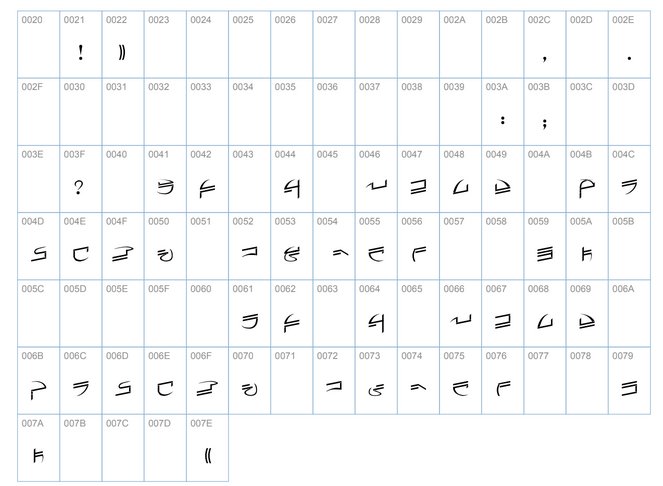One of the most daunting tasks of making a fictitious language is creating the world in which it is spoken. As a conlanger, one does dabble in the art of world building, but where to start? Maybe my experience can help. I am (by no stretch of the imagination) not an expert world builder, but through my conlanging I have been able to paint a neat setting. I will provide links to what I have created thus far at the end of this post so you can enjoy the journey with me, and perhaps this will jump-start my world building to further refine what I have been able to uncover.
For me, I dove into the world building arena early on. I wanted to make a unique culture that is not human, per se. Akin to, perhaps, some of the races found in Star Trek or even J.R.R. Tolkien’s Lord of the Rings. I knew from the beginning that I wanted to make the language feel like an archaeological discovery from a different world. This was the seed I planted to help with creating the culture and to also explain the holes in the language.
Many words I created were the result of—shall we say—a “gut feeling.” For example, the Lorthoan word (roughly translated) for “dragon” is toshani [to·ˈʃa·ni] n. masc. At the time it felt like dragon, but I did not want the animal to be anything like what one could find in folklore or stories here on Earth, so I experimented with it. Thus, the toshani was born:
The toshani is a six-legged, diurnal reptile which resembles something you would expect to see if a Spinosaurus and a Mosasaurus had offspring, just a little smaller. The largest animal described was approximately 30 to 40 feet in length (a system of measurement has yet to be created). The head is nearly a quarter of its body length. Its teeth are knife-shaped to tear through flesh and bone with ease and has the crushing power equal or greater than that of a Tyrannosaurus Rex. With its six legs, it is very agile and can climb up, down, and around rocks at astonishing speed. Its legs are sprawled, much like that of a crocodile giving it the ability to stay low to the terrain. Its outer skin is scaly and armored and has a pattern of red, orange, and tan pastel colors giving it the perfect camouflage for the rocky terrain.
The Language of Lortho and the World of Dhamashi. (2017, September 13). In CBBForum.
https://cbbforum.com/viewtopic.php?p=264881#p264881
The possibilities are endless; there are two quotes I live by as a conlanger to which I constantly and consistently refer when I am writing:
Truth is stranger than fiction, but it is because Fiction is obliged to stick to possibilities; Truth isn’t. – Mark Twain
No matter how strange something is… if you give it enough time, it becomes normal. – Sarah Kellogg (Marg Helgenberger) Fire Down Below
I believe you, too, can make wonderful stories and culture references based on these two quotes. You have the power to awe and inspire, and I hope that—in some small way—I have done the same for you.
The Language of Lortho and the World of Dhamashi
Lortho Wiki

